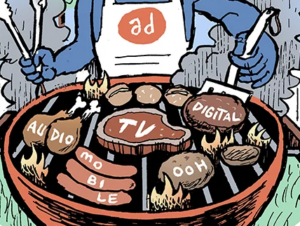This week on The Big Story, the AdExchanger team welcomes three special guests – Goodway Group president Jay Friedman, PricewaterhouseCoopers partner Sam Tomlinson and ISBA director of media Stephen Chester – to dig deep into last week’s incendiary study about the programmatic supply chain.
The study, executed by PwC and commissioned by ISBA, which represents big advertisers in the United Kingdom, had participation from 15 of those members, including Nestlé and Unilever, 12 premium publishers including The Guardian and Mail Metro Media, five DSPs, six SSPs and 12 agencies.
PwC soon ran into unexpected challenges, primarily around getting access to the data, such that a study that was once supposed to take several months and budgeted at 300,000 pounds instead took a year and a half and cost about 1 million pounds.
The study shows that any meaningful steps toward supply chain transparency and accountability will first require standards around how data can be used, accessed and defined.
“The most important step is to resolve data access and data formatting,” says Tomlinson.
In this episode of The Big Story, we’ll dive into what specifically needs to happen, and how likely it is to happen, especially since everyone’s attention is focused on the pandemic and its economic fallout.
We’ll also discuss how the supply chain transparency issue differs in the United Kingdom – where regulation is bearing down – compared to the United States where, according to Friedman, it’s the biggest advertisers demanding access.
Also, we’ll dive into the so-called “unknown delta,” where 15% of advertiser spend all but disappears. Tomlinson, Chester, and Friedman riff on where that money might possibly go.
And we’ll address a major sticking point publishers had with one of the study’s conclusions: that only 51% of advertiser spend actually goes to publishers. Friedman on the podcast and in a recent column for AdExchanger argues that publishers are in fact getting all the working media dollars, and the rest of the ad spend is devoted to enhancing the buy. We’ll question Friedman on this hypothesis.













